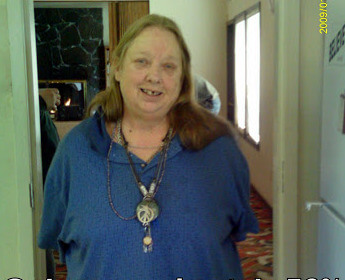 While Linda was on the street, she was always called “Mom,” especially by the young street kids. She was a grandmother who adores little ones, but don’t get in her way. She’ll tell you what she thinks of you without hesitation, and she’ll keep all the young ones in line. The police thought that she was a bad influence on the street folks, but church leaders disagreed. They invited her and others to organizational meetings. And while she was still living on the street, she was invited to steer a central program for the homeless in Gresham: the day shelter program.
While Linda was on the street, she was always called “Mom,” especially by the young street kids. She was a grandmother who adores little ones, but don’t get in her way. She’ll tell you what she thinks of you without hesitation, and she’ll keep all the young ones in line. The police thought that she was a bad influence on the street folks, but church leaders disagreed. They invited her and others to organizational meetings. And while she was still living on the street, she was invited to steer a central program for the homeless in Gresham: the day shelter program.
This program proved successful and now day shelters are open six days a week in four different church facilities in Gresham, which is a significant stepping stone for the homeless to get the help they need both for daily survival and for getting off the street. Eventually Linda got off the street herself, but she continues to host day shelters five days a week.
No matter how much we love the poor or identify with the poor, we will never understand what it means to be chronically poor unless we have lived it over the long term, with no other options. We can imagine what it would be like, but there is always a divide, a mental disconnect. We will always say to ourselves about a certain group of the poor, “Why don’t they just…” Some of us will be too harsh, others of us will be too easy. In the end, only those who lived under conditions of chronic poverty can understand what it means.
This doesn’t mean that the other classes aren’t necessary to meet the needs of the poor. The poor need the literacy and organization skills of the middle class. The poor need the wealth and support of the upper class. But the middle class and the upper class cannot meet the needs of the poor alone.
When God determined His perfect plan to save the world, the Savior of all mankind had to be human himself. He couldn’t just reach out from above and save humanity, but rather he had to become human. And not just any kind of human, but a human born into oppression, choosing poverty and a stressful ministry instead of an easy life. Paul says, “He made himself poor so that we may be made rich.”* In God’s infinite wisdom, He knew that it was not enough for us to become rich—He needed to be among the poor.
Even so, we cannot help the poor, but we must put the poor in such a place so that the poor might help themselves. Some of us, like Jesus, will become poor so as a community of the poor we can help each other. But some poor, like the Gerasene demoniac, like Ruth, like Jephthah, like all the children of Israel in Egypt will be chosen to be God’s testimony to the world because they are poor.* And it is our responsibility to support them and to indicate God’s choice.
Ways to empower the poor to support each other:
 If anyone asks to serve, find a place for them
If anyone asks to serve, find a place for them
When a person comes up to me and asks me if I need any help, often my first internal response is, “I can do it better and faster by myself.” But I remember then that serving others is a basic need for all of us to live out. So then I find something for them to do, even if it is small, even if I could have done it better. In our ministries, if someone is willing to serve, we should try to find a place for them to serve (no matter how incapable they are, or inconvenient it is).
Give the poor leadership in the ministries for them
It should be the goal of every ministry to not only be for the poor, but to be of the poor. In the ministries that are established, find people who can support and lead the ministries and ask them if they would be willing to help run it. This is not only for their sakes, but for the benefit of the ministry as a whole. If you can find the leaders of the poor to help run your ministry, then you will find it is more of a community, and less of an “us and them” outreach.
Create councils of the poor to determine their own needs and solutions
Once a year, we invite our local homeless to speak to their own needs within the region. The only speakers are the homeless (or former homeless) in the region, and they give the organizations who want to serve the homeless a mandate of what the organizations should have as goals. That is one of many ways groups of the poor can speak to how ministries work and help the poor. Every group that helps the poor—whether a security group or an outreach group—should have at least a representative of the poor helping to guide the decisions. Unless the poor are involved, we don’t know how to help them properly
Put poor people on your church council
On your general church council, not just your benevolence/ministry group, have a church member be on your board at all time. A board will make decisions based on who they know within the church. If the church board does not have the poor represented, then they will unknowingly exclude the poor with their decisions. If a poor person is there to help make decisions, then all the social classes of the church can assist with the decision making process.
*I Corinthians 8:9
**Mark 5:18-19, Judges 11










